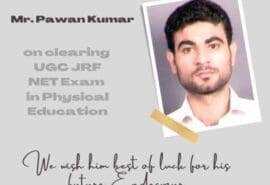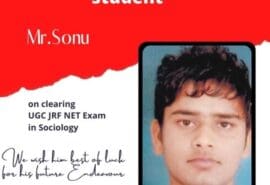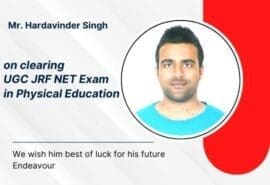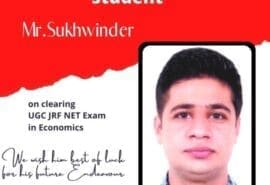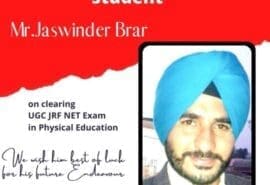
Writing high-scoring essays for the NET Sociology Test
Writing high-scoring essays for the NET Sociology Test
The National Education Test (NET) for sociology evaluates aspirants seeking entry into the domain of teaching sociology. Besides testing substantive knowledge, the exam also uses essay questions to assess writing and analytical skills crucial for educators.
Scoring well on these essay tasks requires understanding key marking criteria and cultivating skills aligned with expectations. This article offers tips and strategies for crafting well-structured, insightful essays that can garner top scores on the Sociology NET.
Analyzing the Question
Students often lose points by failing to read essay questions carefully or fully comprehend analytical expectations. Before beginning one's response:
Utilize the allocated reading time to notice key terms that indicate the required tasks – such as compare, critically examine, analyze causes of, evaluate the contribution of, etc.
Underline the specific focus of the question and circle any other constraints like named theories or sociological phenomena that shape your response parameters.
Draft brief notes clarifying the core issues needing accentuation within a coherently organized essay that directly addresses the analytical demands.
For UGC JRF NET Sociology Exam Preparation Coaching, contact us at Mantram Study Group, SCO No. 80-81, First Floor, Sector 15-D, Chandigarh (Near Gate No. 2, Panjab University Chandigarh – Contact – 9779797575/ 9463049859)
Structuring a Logical Flow
Marker expectations are exceeded by organizing thoughts logically, not just stating ideas as they occur.
Hence, within planning minutes, strategize a sound essay structure that introduces the key sociological issues, presents ordered arguments or evidentiary paragraphs supporting analysis, utilizes relevant theories/data to derive insightful conclusions, and reiterates the main points at the end to round off.
Rather than improvising paragraphs as you type, planning this flow allows crafting a tightly structured piece within timed conditions that logically builds an analytical position.
Applying Sociological Theories
Applying accurately defined, relevant sociological theories and concepts is imperative for NET essay tasks. Beginning with an introduction that lays out the key themes, the second paragraph should establish the theoretical framework selected to analyze issues raised, defining its originator, central arguments, key assumptions, strengths/weaknesses, and justification for its application.
Subsequent paragraphs leverage said theory to interpret dynamics observed in given scenarios, real-world situations, qualitative data or quantitative trends as prompted by the question, demonstrating command of the theoretical model's core principles and analytical utility.
Data-Driven Analysis
Systematically applying data or evidentiary research findings to strengthen one's analysis earns high marks for demonstrating skill as an educator guiding students through sociological study. This first involves stating data sources and disciplinary research supporting the indicated position.
Secondly, essay writers should infuse paragraphs with precise, relevant statistics, percentages, and verified trends from journalistic or academic literature that provide analytical backing to establish subtle sociological influences at play.
Carefully selected data enriches the interpretation of essay issues without overly repetitive citations. Credible quantitative evidence and qualitative discoveries should be unpacked through sociological lenses rather than face-value statements.
Considering Opposing Views
Where questions accommodate debates regarding interpretations of events, behavioral phenomena or social patterns, markers look for acknowledgement and even-handed analysis of competing positions.
After laying out research and theory supporting your main argument, identify scholarly voices propagating an alternate stance, citing real-world data they highlight.
By considering their logic and evidence, you demonstrate academic integrity as an educator -- assessing different analytical paths rationally before justifying your deductions. Enhancing essays by addressing counterclaims signals analytical rigor crucial for high NET scores.
Coherent Connections
Ideally, each paragraph logically builds connections between raised ideas, theories and curate data/evidence. Avoid sudden isolated topics or disjointed statements.
Flow should feel smooth as each subsequent section extends sociological analysis rooted in the chosen framework. Echo paragraph openings and conclusions via transitions that stitch coherent links like "Therefore...", "This evidences...", "Consequently..." etc.
Review the essay ending to ensure it ties starting issues and mid-section interpretations to impactful final insights answering the demands of the original question.
Command of Concepts
Sociological mastery entails incorporating technical concepts, categories and terminology to strengthen analysis and convey subject depth.
For example, essays citing empirical factors like socioeconomic inequalities, demographic transitions, and the culture of poverty, institutional discrimination or ethnocentrism as influencing behaviors or social outcomes will evidence sharper sociological insight.
To demonstrate contextual command, we have mentioned culturally relevant theorists like Ghurye or Dipankar Gupta. Use vocabulary expecting teaching aspirants to distinguish relevant structural concepts tied to questions posed accurately.
Conclusion
Sociology NET essays expect students to concisely demonstrate not just retention of sociological knowledge but skills in applying said insight analytically to serve explanatory, interpretative and educative purposes.
Rigorously developed response structure, infused theorization, evidential anchoring, conceptual complexity and analytical voice distinguish high-scoring essay performance.
With practice and savvy test-taking tactics, aspirants can excel amidst the pressures of producing coherent written critiques on unseen questions in strict timeframes expected of future educators guiding young minds. Simulating these testing conditions during preparation builds one's capabilities for success.
Thanks for visiting our website Mantram Study Group
You may also join Mantram for NORCET Coaching
CHECK OUR OTHER LINKS: -
Testimonials
 Their passion for teaching and extensive knowledge of the subject matter shines through in their engaging lectures and interactive class sessions. Students can grasp complex concepts and excel in their exams with their guidance. The CSIR Life Science Coaching Academy's commitment to students' success is evident in its teaching methodology.
Their passion for teaching and extensive knowledge of the subject matter shines through in their engaging lectures and interactive class sessions. Students can grasp complex concepts and excel in their exams with their guidance. The CSIR Life Science Coaching Academy's commitment to students' success is evident in its teaching methodology.
















